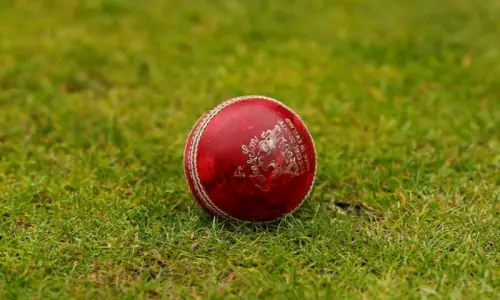ISLAMABAD: A talk by cultural connoisseur, Ally Adnan, on the story of Kathak, a classical Indian dance form, pulled enthusiasts of dance, music and culture to the Serena hotel Thursday evening.
The talk was organised by the Asian Study Group (ASG), a voluntary organisation which aims to promote a greater understanding of the culture, geography, history, religion, crafts and customs of the Asian region in general, and Pakistan in particular. ASG President Parveen Malik said the talk is part of the organization’s efforts to revive Pakistan’s lost cultural heritage.
Ally Adnan who is currently visiting from the United States, is an electrical engineer by profession but is known as an art collector, cultural commentator, journalist, writer and public speaker.
His areas of expertise include classical dance, music, Sufism and Qawali.
The warm aroma of coffee filled the room and created an intimate ambiance as Mr Adnan began his talk by playing a video clip of a Kathak performance by Roshan Kumari.
The talk interspersed with video clips of music and dance traced the history of this dance form through the ages to the time when Aryans arrived in ancient India.
The word Kathak has its roots in the Sanskrit word katha which translates to story or tale, which is why Kathak is known as the dance of story-tellers.
Mr Adnan explained that Kathak is one of the major forms of the classical dances of the Subcontinent but it is the only one which is not closely tied to any one religion.
“Today, Kathak is truly secular in concept, incorporating elements of the splendour of Mughal courts, the ethos of Hindu temples, the aesthetics of Persian art forms and the philosophy of Sufism,” he said.
According to Mr Adnan, Kathak evolved into a formal dance form between 15 BC and 10 BC when its basic elements and rules were established.
At the time, it was primarily performed in temples which were not just places of worship but the centre of social, cultural, political and religious life.
The next important phase in the evolution of Kathak was during the 15th century Bhakti Movement which swept over India.
During this period, the followers of this movement began to develop dance as form of worship, however they preached against the caste system and prescribed an alternative individual-focused path to spirituality.
Through the influence of the Bhatkis, Mr Adnan explained, Kathak moved towards stories of love and peace with the romance between the Hindu gods Radha and Krishan becoming the most important source of inspiration.
However, with the advent of the Muslim rule in India, Kathak found patronage in the courts of the Mughal kings. For the evolution of the dance form, this meant a shift from the stories from Hinduism and the technique became most important, with the fastest dancers considered the most skilled.
Members of the audience were especially fascinated to learn about the evolution of the dress of the women performers which went from the lehnga and choli favoured during the heyday of the Hindu Rajput kings to the more modest chori-dar and peshwas worn in Mughal courts.
Today, Mr Adnan lamented, Kathak is a dying art form in Pakistan with its most well-known exponents fading away into obscurity.
Over the past decades, dance has been relegated to a form of lewd entertainment, branded as un-Islamic and hence discouraged.
“Kathak contains all the splendour and none of the myopia that is India and Pakistan. It is all about love and peace,” he said.
Published in Dawn, December 29th, 2018


































